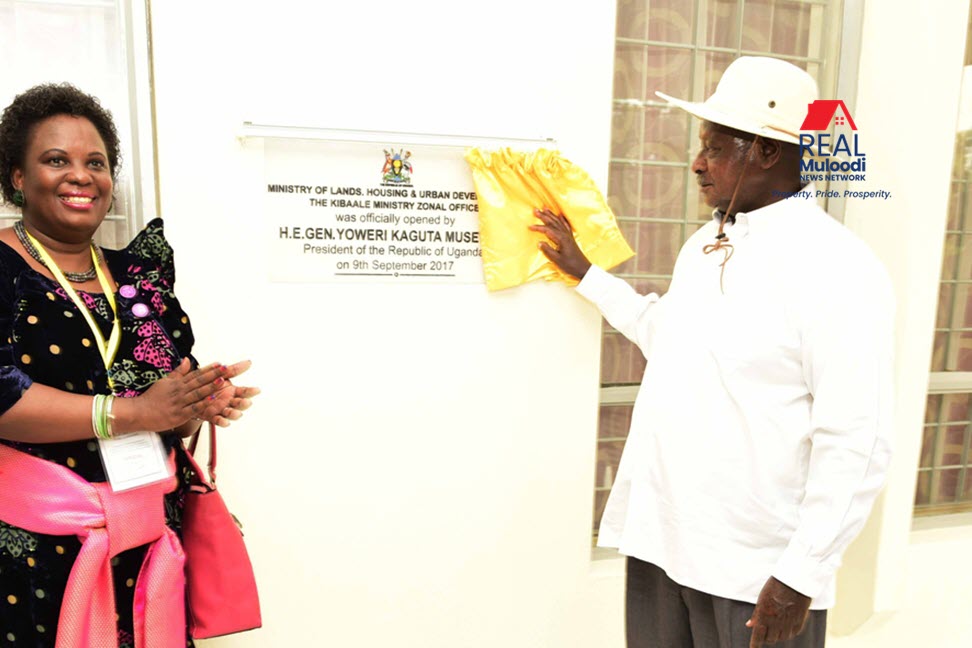UGANDA, Kampala | Real Muloodi News | It has been about four years since the countrywide roll-out of the Lands Zonal Offices initiative. But recently, concerns citing local leaders being unaware of the existence of the Lands Ministry Zonal Offices in their respective areas have come to the surface.
As part of comprehensive land reforms, Lands Ministry Zonal Offices (MZOs) have taken up the roles previously played by district land offices. MZOs launched with a pilot phase in 2015 covering 6 cadastral districts (Kampala, Mukono, Wakiso, Jinja, Masaka, and Mbarara). The project then entered a new phase in 2017 with the roll-out at the national level. Uganda has now set up 22 such offices.
However, when Sam Mayanja, the Lands State Minister, visited Masindi in early September, he asked the district chairperson, Mr Cosmas Byaruhanga, if he had heard of the ministry’s Lands Zonal Offices. Mr Byaruhanga confessed he did not know much about that office but only recently met a girl who works there.
However, Mr Byaruhanga is not a case in isolation. Mr Sam Atul, the mayor of newly formed Lira City, told Mr Mayanja he too knew little about the Lands Zonal Offices, yet the Lira offices sit only a short distance from his office. Mr Atul admitted never to have been to the Lira Lands Zonal Offices, adding he does not know what they do.
The role of MZOs includes transferring, issuing, and cancelling titles. In addition, the MZOs processes mortgages, physical planning, surveying, valuation, land administration and land registration. They monitor, supervise and offer technical guidance to the local governments. Additionally, MZOs provide general technical advice to the public on land administration and management of land.
Like district land offices, Lands Ministry Zonal Offices planned staffing include physical planners, land officers, cartographers, valuers, surveyors, records officers, ICT officers, communications officers, registrar of titles, and inter-alia.
Each of the officers plays a technical role as far as land administration is concerned.
The Lands Zonal Offices help with searches about land titles and acquiring a freehold land title, obtaining a leasehold land title, transferring Mailo land, converting a leasehold to a freehold land title, applying for a caveat, carrying out sub-division on Mailo land, registering mortgages, and replacing lost or damaged titles.
The 22 Lands Zonal Offices house Uganda’s National Land Information System (LIS) and facilitates the above activities with the primary objective of stemming fraud in Uganda’s system.
All the 22 MZOs connect to the National Land Information Centre found at Nakasero. The system provides a monitoring tool that enables management to monitor all the MZOs across the country and the staff employed there, thus ensuring optimal time and resource utilisation.
The Land Informant System received praise for providing a vigorous, secure, and transparent method for registry offices to record and manage property transactions and land information.
The new system applies to Freehold titles, Leasehold titles, Mailo titles, and Certificates of customary ownership. It prevents encroachments on wetlands, forests, road reserves, and other public land reserves. It reduces the time required to check, update and transfer land. It increases the security of land tenure and contributes to a reduction in corruption associated with checking, updating, or transferring titles. It delivers services closer to the public.
Land Zonal Office Locations:
- Arua
- Fort Portal
- Gulu
- Jinja
- Kabale
- Kabarole
- Kampala (KCCA)
- Lira
- Luweero
- Masaka
- Masindi
- Mbale
- Mbarara
- Moroto
- Mpigi
- Mityana
- Mukono
- Rukungiri
- Soroti
- Tororo
- Wakiso
District leaders ought to collaborate with lands zonal offices to encourage their constituents to make good use of the services they provide.
READ MORE LIKE THIS:



